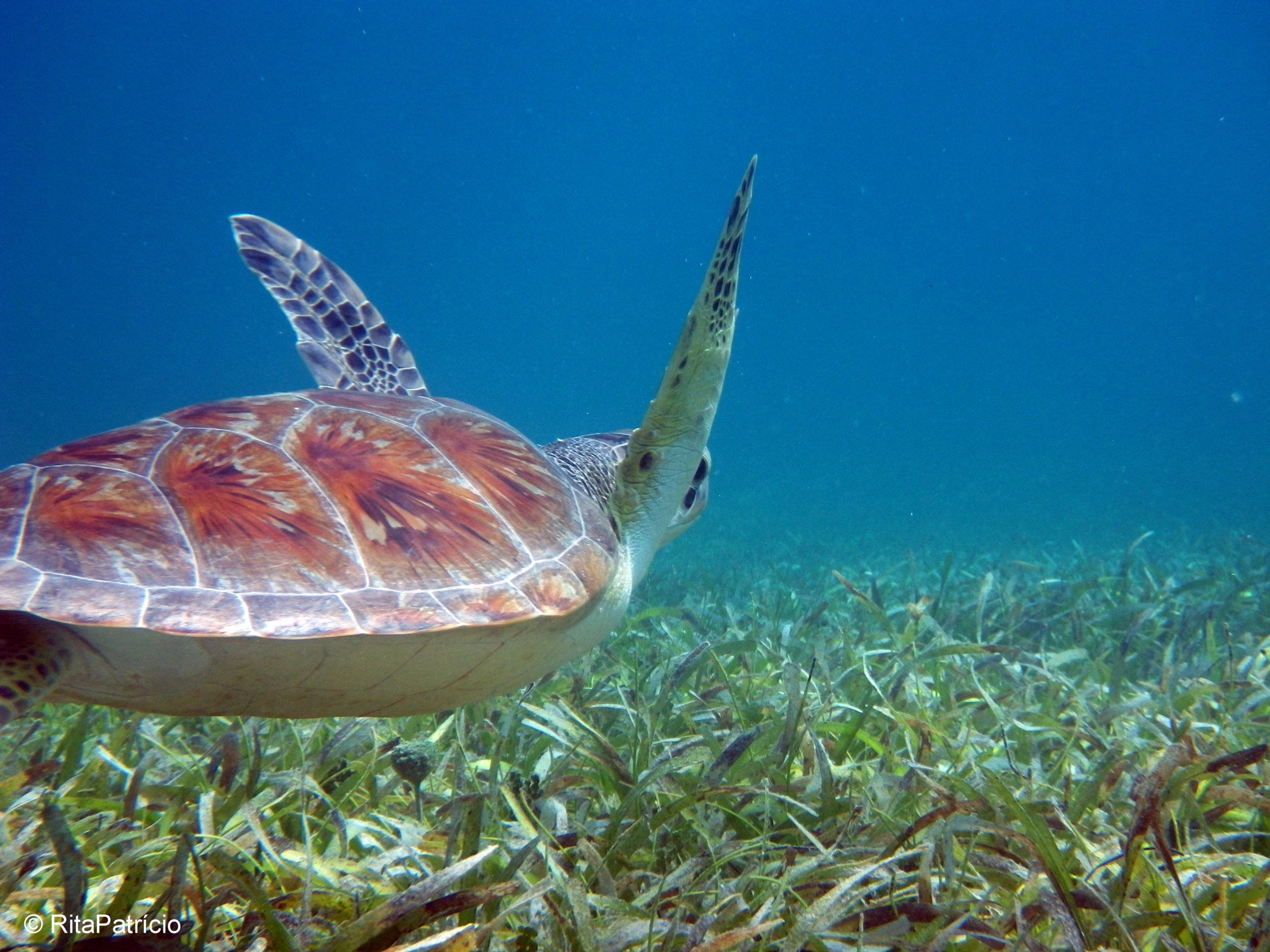As we segway from #WorldOceansDay into #SeaTurtleWeek we though we would share with you all an insight into just some of the research being carried out by @ExeterMarine at the Univeristy of Exeter!
Below, members of the Marine Turtle Research Group led by Profs Annette Broderick and Brendan Godley share their research and why they enjoy working with these ancient animals.
Ceren Barlas, PhD student 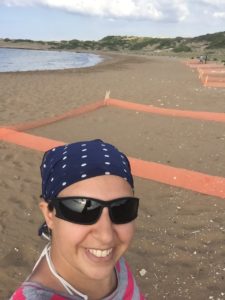
Hello! I am a Ph.D. Biological Sciences student in the Marine Turtle Research Group at the University of Exeter, supervised by Brendan Godley and Annette Broderick. My research focuses on the marine plastic pollution in the Mediterranean and how it affects the physical and biological environment. The recent experiments at Alagadi beach investigated the effect of macroplastic contamination on the beach, where we compared the effects of different contamination levels and different plastic types on sand temperature. This type of contamination and resulting effects are important for sea turtles, as a change in sand temperature can change the sex ratios of the hatchlings and affect the reproductive success of future generations.
Find out more about the turtle conservation project at Alagadi Beach here.
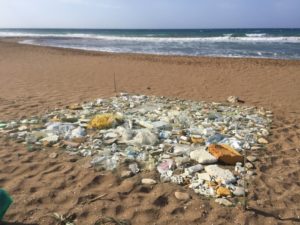
Dr Ana Nuno, Research Fellow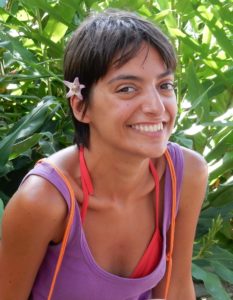
How can we better protect sea turtle populations worldwide? We need to understand the root causes of problems affecting them… and that often means understanding how people use them (e.g. diet and culture). My research combines information about sea turtles and people so that we can design robust conservation programmes. For example, my research explored sea turtle farming as a way of promoting sustainable use of turtles in the Caymans Islands and assessed drivers of the illegal trade of marine turtle products in Cape Verde. There are so many different ways people value sea turtles… it’s crucial understanding these different perspectives so that we can find ways forward!
Find out more about Ana and her work here, and follow her on Twitter.
Research paper exploring the drivers and deterrents of illegal turtle harvesting.
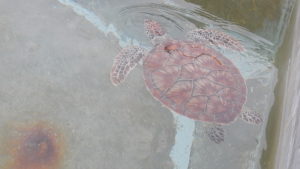
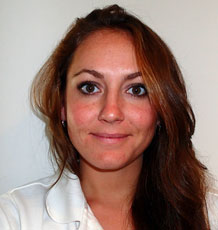 Julia Haywood, PhD Student
Julia Haywood, PhD Student
I am a marine spatial ecologist working on female loggerhead turtles in the Mediterranean Sea. Using satellite telemetry, stable isotope analysis, and satellite remote sensed data I aim to unravel the mystery of what they get up to when they aren’t nesting. Where do they go, how do they find their way there, what is so special about that place, and how do human activities affect them?
Follow Julia on twitter!
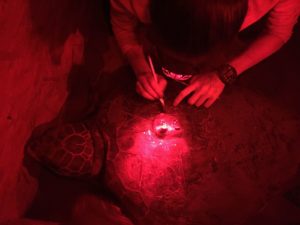
Dr Rita Patricio, Postdoctoral Researcher
Dr. Patricio is a Postdoctoral researcher at MARE-ISPA, Instituto Universitário, Portugal and University of Exeter, UK.
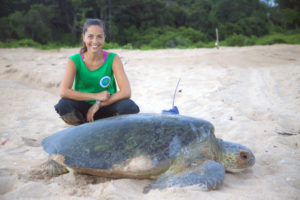
I research the green turtle connectivity along the West African coast and the Atlantic, using satellite telemetry, to assess their migratory routes, and genetic analysis, to investigate their origins. Other aspects we are also looking into include climate change impacts on the greatest green turtle population in Africa, habitat selection, and status of the critically endangered hawksbill turtle in the Bijagós Archipelago, Guinea-Bissau.
I work with an amazing team of students, researchers, national technicians and community members. Our work contributes to improve sea turtle protection, for example informing the zonation of MPAs, or suggesting regulations at priority sites, it helps to raise awareness, through the participation of local communities in conservation work, and it builds the capacity of national teams involved on research. Plus, disseminating our research results and activities boosts visibility enhancing funding opportunities for conservation.
It is fascinating to work so close to these charismatic and ancient-like creatures. Marine turtles are very symbolic to many coastal African communities, representing abundance, power, and fertility. Understanding local cultures and working together for the conservation of marine turtles for the coming generations it is most fulfilling.
Follow Rita on Twitter and find out more about the project by following the links below.
Atlantic Migrants Marine Research Group 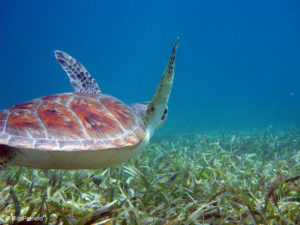
Casper van de Geer, PhD student
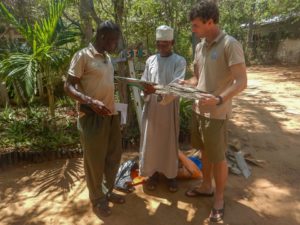 I have recently started my PhD, where I will be looking into the ecology and conservation of marine turtles in Kenya. The fieldwork and data collection has been carried by the team at Local Ocean Conservation (LOC), founded in 1997 and based in Watamu, and is ongoing. Before starting my PhD I was the manager at LOC for four years.
I have recently started my PhD, where I will be looking into the ecology and conservation of marine turtles in Kenya. The fieldwork and data collection has been carried by the team at Local Ocean Conservation (LOC), founded in 1997 and based in Watamu, and is ongoing. Before starting my PhD I was the manager at LOC for four years.
I will be investigating turtle nesting trends and incubation temperatures, as well data collected through the LOC’s Bycatch Release Programme. The Bycatch Release Program aims to minimize mortality of turtles resulting from interactions with the artisanal fishing sector, which has been recognized as one of the major threats to marine megafauna in the Western Indian Ocean region. I will also be carrying out an assessment of this program to see if it should and could be replicated elsewhere.
There is still much we do not know about turtles in Kenya or indeed the wider Western Indian Ocean, so I’m excited that my research will be able fill some of these knowledge gaps and contribute towards effective conservation strategies for these incredible marine reptiles. These contributions will also demonstrate how important local grassroots conservation efforts, like those of Local Ocean Conservation, can be if they are carried out properly and consistently.
Check out Casper and Local Ocean Conservation on Twitter!
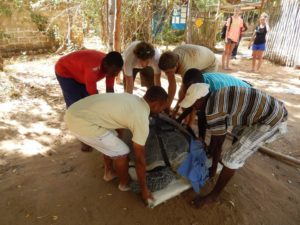
Dr Liliana Poggio-Colman, Postdoctoral Researcher
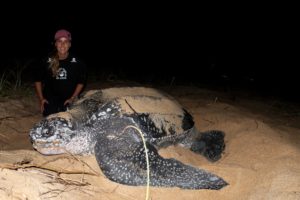
I’m a postdoc researcher working with the ecology and conservation of a small and critically endangered leatherback turtle population nesting in Espírito Santo, Brazil. We work together with @ProjetoTAMAR in Brazil to monitor them and investigate their nesting ecology, population trends, habitat use and threats. I love being able to work with such magnificent creatures.
Find Lili on Twitter and take a look at this video for more information on the project!
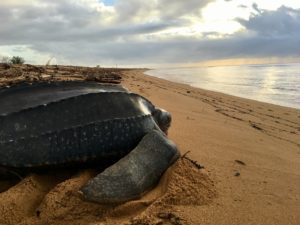
#ExeterMarine is an interdisciplinary group of marine related researchers with capabilities across the scientific, biological, medical, engineering, humanities and social science fields.
Find us on: Facebook : Twitter : Instagram : LinkedIn
If you are interested in working with our researchers or students, contact Michael Hanley or visit our website!

